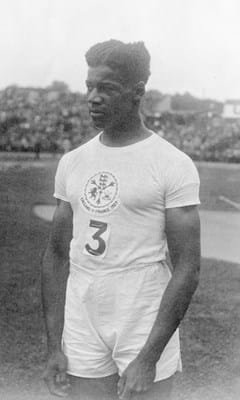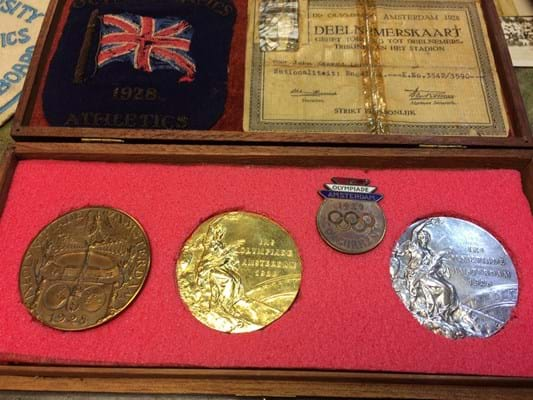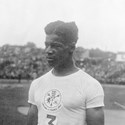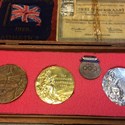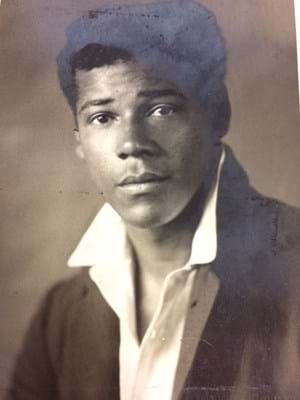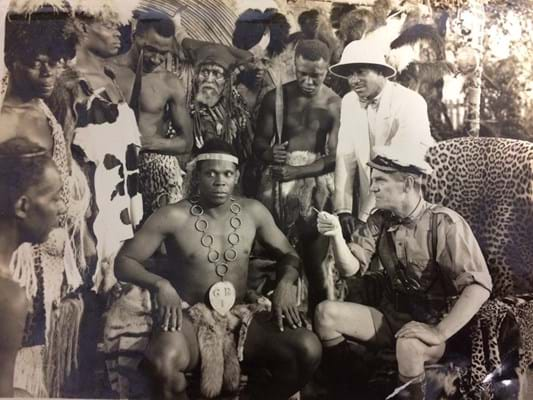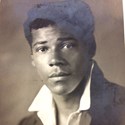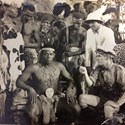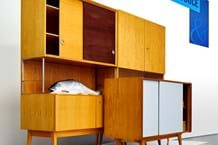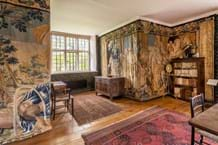London’s medals have been consigned to auction at Hansons in Etwall, Derbyshire, by family and will be offered on November 19 with an estimate of £3000-5000.
The collection of medals, that also includes an Olympic commemorative medal, two relay batons (one used in the 4x4 100 metres in 1928 and the other in the British Empire Games) previously appeared on the BBC’s Antiques Road Show.
Consignor Christine Downham said: “They’ve just been stuck in a cupboard where no one can see them. Because my great uncle was the first black athlete to win Olympic medals for Great Britain, perhaps his collection deserves to be in a museum.”
“Ground-breaking”
Charles Hanson, owner of Hansons, said: “He was ground-breaking in more ways than one. As well as being the first black man to win Olympic medals for Britain, he was the first athlete to use starting blocks in the tournament.
“Sadly, he was only 61 when he died suddenly in 1966 from a subarachnoid haemorrhage. By that time, he was working as a porter at London’s St Pancras Hospital. His life was cut short all too soon but what a lot he crammed into it.”
London was born in 1905 in British Guiana, now Guyana, and moved to London as a baby. After a short time back in British Guiana he returned to the UK. He studied at Regent Street Polytechnic, joined the Polytechnic Harriers and was trained by renowned coach Sam Mussabini - the man who helped athletes win 11 Olympic medals.
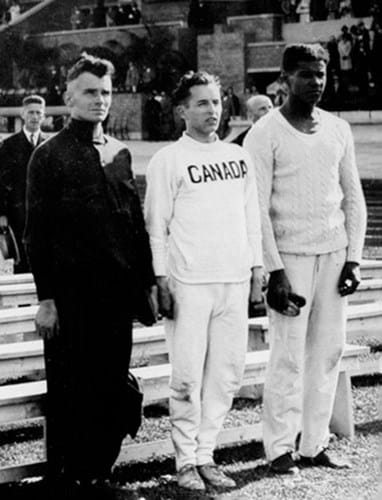
100 metre runners Georg Lammers, Percy Williams and Jack London at the 1928 Olympics. Image credit: Hansons.
After equalling the Olympic 100 metres record of 10.6 seconds in the semi-final in 1928, London won the silver medal in the 100 metres final, behind Canadian Percy Williams.
In July 1929, he became the first British sprinter to win the Amateur Athletic Association’s 100 yards title since Harold Abrahams in 1924. He was also a leading British high jumper in this period. His athletic career was curtailed by a leg injury in 1930.
After retiring from athletics, London was in the original cast of Noël Coward’s musical Cavalcade at London’s Theatre Royal in 1931 and appeared in the 1938 film Old Bones of the River.
London, who married twice but had no children, also co-wrote a coaching manual in 1948, The Way to Win on Track and Field.


